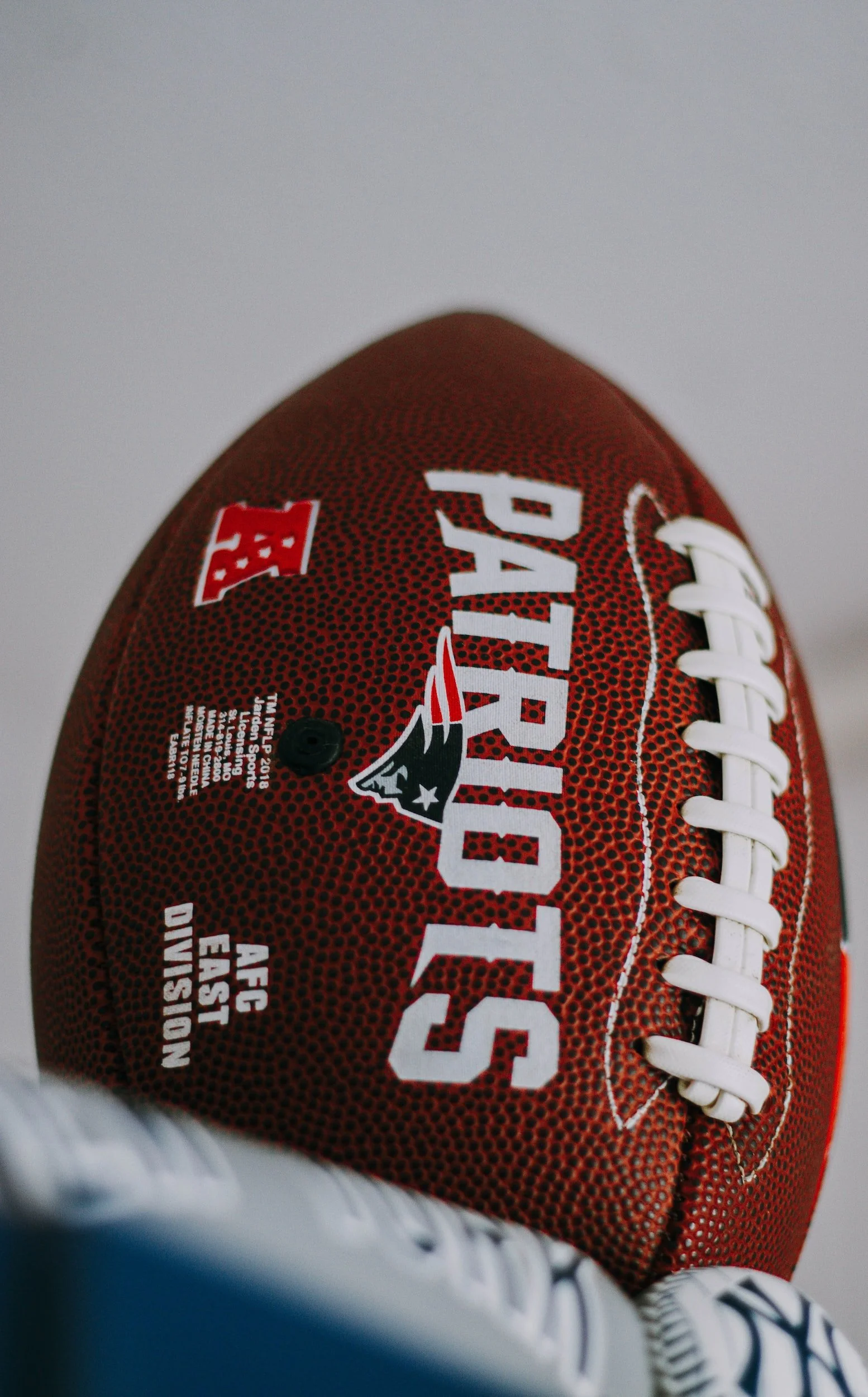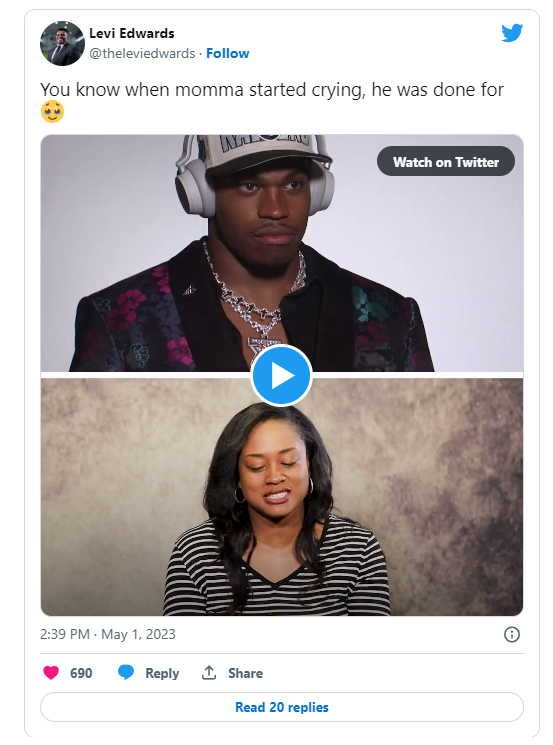The 2023 NFL draft has come and gone, and the reactions and hot takes have flooded the internet. That’s fine. 51 million viewers around the country watched. Then afterward people went to YouTube videos and sites proclaiming expertise to read about the newest member of a fan’s team, their breakdowns, and analysis of their team's draft picks. The real question is, why do we love drafts — particularly the NFL Draft— so much?
Hope
With football, like with baseball, in spring, hope springs eternal. Right now, every team is undefeated. Right now, every fan can watch highlight reels of their team's rookies and imagine them performing at Hall of Fame levels in the NFL. Each pick has a story; there is always a reason to believe your team got a steal.
Player X was under-utilized in his college program and, therefore will thrive in the NFL with better coaching, better nutrition, focus on football, better supporting cast, more time in the weight room, if things click, with some maturation, if he can clean up his footwork, improve his mechanics, eliminate off-field distractions, improve his hand-placement and develop to his talent level…
The reality is many fans watch their teams disappoint during the previous NFL season. The draft rejuvenates their hope that the team will turn the corner, and this will be their year. This isn’t a fantasy, either. Every year, a team, or a few teams, pull themselves off the mat and become a contender.
Only three years ago, the Philadelphia Eagles were a four-win team. Through good drafting, they ascended the following year to 9 wins, then a Superbowl appearance last year. This year they were the buzz at the draft. People complained that the rich got richer as their general manager, Howie Roseman, plucked college stud after college stud, wheeling, dealing, and reinforcing the perception that the Eagles will contend for Superbowl LVIII.
Some fans feel like their team is just a player or two away, and if they can land those players, they will dominate the upcoming season. Many fans study the prospects from the moment their team was eliminated. Some watch college football with passion and develop perceptions of players along the way. For the most part, millions of fans fancy themselves as armchair general managers and have fully developed ideas about what their team should do.
The Evolution
When I was younger, there was no internet, no YouTube, no streaming, and draft scouting hadn’t yet become a cottage industry. There was no Mel Kiper (well, there was, but he hadn’t ascended to his legendary status yet). There was no NFL Network or ESPN. I would send a physical check to Ourlads for their draft magazine, and I would read over Sports Illustrated and the Sporting News to get a vague idea of who might be there when the Raiders picked. It was nerdy, but I think I was on to something. With better resources and immediate access, tens of millions of people watch the draft more enthusiastically than the actual games.
Why? Because now, every pick is a home run. Every player who might be a future bum looks like an All-Pro. Every team got the guy they wanted. Every team couldn’t believe he fell to them at that pick. And every fan sees all the potential and none of the weaknesses of their team's selections.
What’s funny is the team that has underwhelmed and disappointed to the point where they are looking to the draft for their saviors is filled with drafted players who embodied all the hope that these new guys have, but weren’t the answer. Many rookies selected will fall into the category of disappointment or the dreaded ‘serviceable’ category. But fans want stars, and each selection could become that star this time of year.
Tom Brady Ruins Everything
There is an inverted phenomenon that happens. Teams take a player unwanted by the fans and the fans can’t comprehend why they took him when the player they wanted was still there. Then the player becomes great, and the player fans wanted doesn’t.
Think about the 2001 draft. The New England Patriots had a young franchise quarterback in Drew Bledsoe, who was the first overall pick and just entering his prime. He was a big-armed gunslinger with prototypical size and was the youngest quarterback to make a Pro Bowl in 1995. In 2001 he was entering his prime. The Patriots had Bill Belichick, the new defensive genius, as head coach, and the combination of a great defensive mind paired with a franchise quarterback should set the Patriots up to contend for years.
In the sixth round of the 2001 draft, with pick 199, they selected a backup quarterback (yes, he was a backup/split time in college) out of the University of Michigan, Tom Brady. New England fans lost their minds.
Why? We have a quarterback. Get him some weapons! Fans cried.
Build up that defense! Others exclaimed.
You wasted a pick on a guy who’ll never play. Yet others complained.
As you know, Drew Bledsoe got hurt. Tom Brady went on to win 6 Superbowls with the Patriots and an additional one with the Buccaneers and is universally considered the greatest of all time.
The point is, the fans, although they (we) think we know, don’t. And really, even the teams don’t. Would every team pass on the greatest player of all time five or six times if they knew? No.
Does every team’s pick make sense at the time? Not to everyone. Sometimes the fans are vindicated for their opinions, and sometimes the teams are. The good news is that when the fans were wrong, the team was right and drafted a good player.
The Show
Fans want hope and that’s why the draft is such compelling theater. Fans watch with anticipation, hoping their favorite prospect will somehow fall into the lap of their favorite team. There is added drama as the production value of the draft has gone from a few dozen executives cloistered in a hotel picking guys off of paper lists their scouts compiled to a real show. This show is now broadcast on three networks: NFL Network, ESPN, and ABC, with full crews and meticulous planning.
Because it’s a show, it isn’t limited to the selections. There are interviews, behind-the-scenes exposés, background stories, and even puppies peeing on analysts. Drama ensues.
They Are People
This year there was a touching moment when a Dallas Cowboys scout called his son, Deuce Vaughn, to tell him he was being drafted.
A first round receiver, Jaxon Smith-Njigba, got a call from his brother, who plays Major League Baseball for the Pittsburgh Pirates, and it was recorded.
The Raiders first round pick, Tyree Wilson received this emotional call from his mom and his reaction was a real tear-jerker.
These things show that the hope of the draft isn’t limited to the fans. Players spend their whole lives dreaming of playing pro sports, and being drafted is the moment it becomes real. Their dreams come true with a phone call. Yes, the work is still ahead of them, but the reality of becoming a professional athlete is realized in a singular moment, a moment most of us never experience but dream about. In this moment, we are no longer merely fans of the team or the player but emotionally entangled in the player’s journey.
Rounds
The draft used to be 12 rounds with fewer teams. Now it is seven rounds with 32 teams. Although this is fine, watching the UDFAs (undrafted free agents) sign with teams and the bidding wars that surround them, it feels unfair that a player actually drafted in the seventh round has less of a chance to make the team and will make less money than a player who wasn’t drafted.
For example, McClendon Curtis received over $200k in guaranteed money to sign with the Raiders. His rookie contract will be 3 years, meaning if he makes the team and sticks, he’ll be eligible for a new contract in a couple of years. Whereas the Raiders 7th round pick, Nesta Jade Silvera, got the honor of being drafted but will only receive a likely $123K in guaranteed money, and if he makes the team must wait three years for a new contract.
This tells me that the 6th and 7th rounds of the draft should be eliminated. This would allow players to decide which team they go to, improve their contract and financial situations, and make every selection in the draft more meaningful.
Draft Grades
This is the silly part. Every analyst feels like they need a hot take. This is disappointing because all the fans and players selected are hopeful and optimistic and can see the upcoming glory associated with their favorite team outsmarting the rest. They magically took the player who will become a legend. Telling fans their team got bad value or should have taken someone else is insulting to the young man selected and dashes the fans' dreams, right or wrong. And is it necessary?
These teams put in countless hours, resources, medical exams, background checks, employ scouts across the country, examine fit and need, interview coaches, family, and friends, to finally select a player they think fits their team, their scheme, their culture, and their needs and some talking head tells them all they picked the wrong guys. Stop it!
Allow The Hope
Let the fans speculate. Let the draft picks enjoy their moment. Take a beat and realize you don’t know, and you don’t have to know. Getting it right, as an analyst, isn’t important. The teams build their rosters, and either they will improve or the fans will return in the spring with new found hope. Either the players will be good, or they won’t.
Much of what determines a players success won’t have to do with why the team selected them to begin with: injuries play a factor, and sometimes the better coaching, nutrition, focus etc. just isn’t enough. The project didn’t project as hoped. That’s fine. Sometimes a player surprises. That’s like finding a twenty-dollar bill in your jacket from last season. But when the player is selected, he is a prospect. He is young. The fans’ appreciation of the player is new. He may not be good, but that’s for later when he’s a man, for when he’s cashed some checks. For now, let hope spring eternal.
Find me on Twitter @JerryMooney











